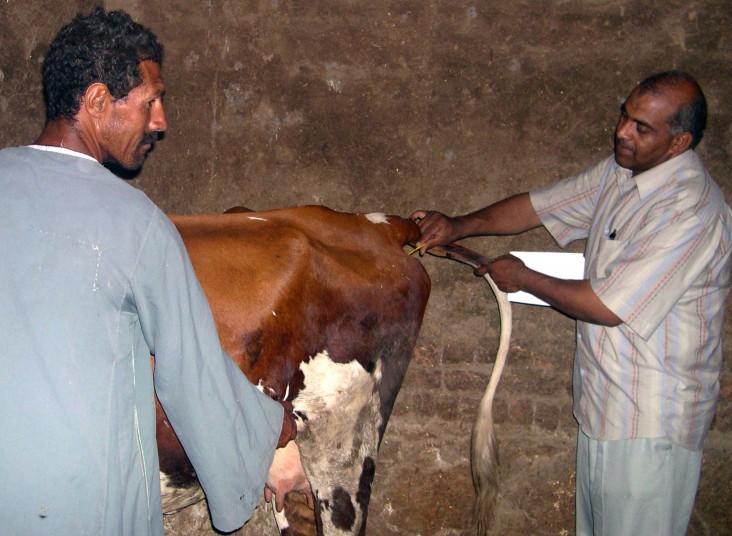
In El Borgayah, a town of 20,000 in Egypt's Menya Governorate, one out of every ten residents owns livestock. Most, however, rely on traditional rearing and health practices. Simple illnesses would often turn serious and a private veterinarian would need to be called. But even their vet, who charges $1.75 for a visit, was often unable to save the animal's life.
With low milk production and high animal death rates, the small farmers of El Borgayah were in crucial need of a new approach to improve the health of their herds. In 2004, USAID began working with the smallholders to improve veterinary service and, in turn, increase animal life expectancy, ensure healthy animal birth, increase milk production and improve milk quality.
With support from USAID, 49 farmers formed the Mostakbal Association for Development of Animal Wealth to increase job opportunities in livestock production and give farmers a source for equipment and feed. The association also provides marketing opportunities, lectures, workshops and financial, social and educational services.
Mostakbal has also negotiated and signed a contract with a veterinarian, under which the doctor examines a farmer's animals twice a month for $0.53, regardless of the number of animals the smallholder owns with $0.17 of the payment going to the association. Regular contact between doctor and patient has improved the veterinarian's response time when urgent care is needed. Veterinary costs have fallen, animal death and disease rates have decreased and, accordingly, the production cycle and income have improved. The veterinarians working with the association have also benefited from the steady relationship, earning as much as $18 more a month.
The improvement to animal health has had another surprising effect. Seeing how regular preventative care benefited their animals, El Borgayah's residents have improved the health care of their children. While many parents used to delay visiting a doctor until a child developed a severe illness, today they take their children in for regular check-ups and vaccinations. El Borgayah now knows — through first-hand experience — that prevention is better than a cure.







Comment
Make a general inquiry or suggest an improvement.